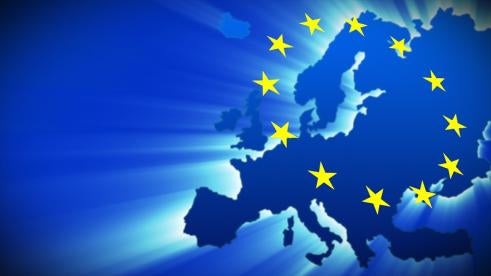Following the uncertainty created by earlier rulings, the Court of Justice of the European Union (CJEU) has handed down another judgment on when hyperlinking will be unlawful. The ruling focuses on Article 3(1) of the InfoSoc Directive and, in particular, the meaning of “communication to the public”. The question before the Court was – when will hyperlinking be copyright infringement?
The CJEU held:
-
providing hyperlinks to copyright content to which access is restricted and which allow those access restrictions to be circumvented will be copyright infringement, and so unlawful. For example, where the content is on a subscription only site, providing a hyperlink which allows non-subscribers to access the content will be copyright infringement;
-
providing hyperlinks to freely available copyright content posted on the internet with the copyright owner’s consent will never be copyright infringement and so can be done freely;
-
providing hyperlinks to freely available copyright content posted on the internet without the copyright owner’s consent will be copyright infringement (and so unlawful) where the hyperlink is provided “in pursuit of financial gain”. This is unless the hyperlink provider can show that they did not know that the linked to content was illegally published (that is, copyright protected and put on the internet without the copyright owner’s consent). However, there will be no copyright infringement where the hyperlink is not provided “in pursuit of financial gain” unless the hyperlink provider knew or ought reasonably to have known that the linked to content was illegally published.
The effect of this ruling is that copyright owners have three main avenues of redress where their content is made freely available on the internet without their consent. They can go after:
-
the individual who put the work on the internet in the first place (assuming they can find out who that is);
-
anyone providing hyperlinks to that content “in pursuit of financial gain” to get the links taken down;
-
anyone providing hyperlinks to that content not in pursuit of financial gain but who knows (or should have known) that the content was illegally published, also to get the links removed.
 So, what are the practical implications of this ruling? The grey area in this judgment is scenario 2. Here, the hyperlink provider is presumed to know that the content they are linking to has been illegally published unless they can rebut that presumption. If they cannot, they risk liability for copyright infringement. A number of issues arise.
So, what are the practical implications of this ruling? The grey area in this judgment is scenario 2. Here, the hyperlink provider is presumed to know that the content they are linking to has been illegally published unless they can rebut that presumption. If they cannot, they risk liability for copyright infringement. A number of issues arise.
-
When will a hyperlink be provided “in pursuit of financial gain”? The CJEU did not explain this concept but it could conceivably cover all links provided in a business context.
-
The CJEU expressly said that anyone providing hyperlinks in pursuit of financial gain was expected to make checks to ensure that the content had not been illegally published. Clearly, the adverse practical implications of this requirement are significant. The Court said:
“Furthermore, when the posting of hyperlinks is carried out for profit, it can be expected that the person who posted such a link carries out the necessary checks to ensure that the work concerned is not illegally published on the website to which those hyperlinks lead, so that it must be presumed that that posting has occurred with the full knowledge of the protected nature of that work and the possible lack of consent to publication on the internet by the copyright holder. In such circumstances, and in so far as that rebuttable presumption is not rebutted, the act of posting a hyperlink to a work which was illegally placed on the internet constitutes a ‘communication to the public’ within the meaning of Article 3(1) of Directive 2001/29″.
-
Is it the case that the presumed knowledge of illegal publication will be rebutted by these checks? If so, do these checks have to be exhaustive or does a reasonable threshold apply?
The effect of this ruling seems to be that liability for primary copyright infringement in the context of hyperlinking is contingent upon the defendant’s state of mind. Arguably, this goes beyond the terms of the InfoSoc Directive.
Copyright owners will welcome this ruling. However, until we have clarification from the CJEU on a number of issues, in particular what “pursuit of financial gain” means, anyone providing hyperlinks in a business or profit making context needs to be aware of the risk of liability for copyright infringement. To minimise this risk, hyperlink providers should take such steps as are practically possible to establish that the content they are linking to has been made available with the copyright owner’s consent. It will be important to document these steps.




 i
i

